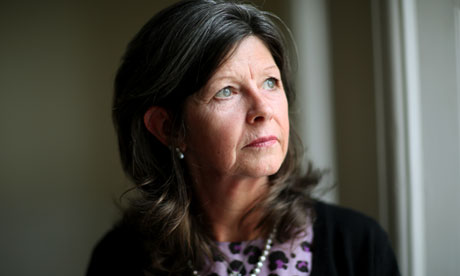
It was walking around and around the rooms in which she was held hostage after being kidnapped off the coast of Kenya that helped keep Judith Tebbutt physically and mentally intact during her six-month ordeal, recounted in this immensely moving memoir. One night her dream holiday in a remote resort in Kiwayu turned nightmarish when she was torn away from David, her husband of 33 years, and dragged by pirates to Somalia.
How do we survive when we lose what we love? David was killed on the night of the kidnapping, a tragedy that 25-year-old son Ollie had to tell his mother by telephone ("In my head, in my heart, it was as if a clock had stopped"). With great emotional acuity, Tebbutt offers a raw insight into grief and the imaginative capacity to conjure loved ones absent through distance or death. Each morning she breakfasts with absent Ollie; each evening bids him goodnight. Establishing a routine is crucial, her main activities "walking, waiting and writing". Tebbutt's training as a social worker, dealing with vulnerable, violent people, proved vital in interacting with her captors, championing humanity in the most inhumane situation. Her survival strategies recall Mandela's disciplined prison regime in his memoir Long Walk to Freedom.
Finally released for a ransom, Tebbutt poignantly details the difficulty – yet necessity – of moving on, of dealing with the quotidian events that "stir the embers of memory". This unflinchingly honest memoir, written with Richard T Kelly, touches on Tebbutt's childhood in "a working-class northern household", yearning for escape yet without high expectations of "being able to make my way in the world"; she defied the odds to do just that.
Here is a heartrending reminder that "there is nothing as bad in life as to have no hope".
This powerful book captures the urgency of telling even the darkest of stories, and evokes the power of resilience in adversity. "I have my freedom, so what am I going to do with it?", asks Tebbutt. A book that begins with a horrific death becomes a clarion call to cherish whatever we might have left of life.

